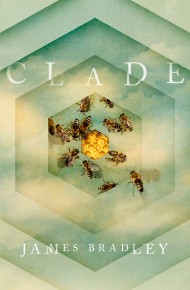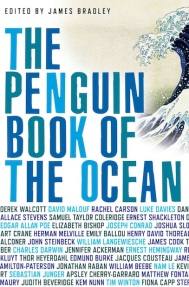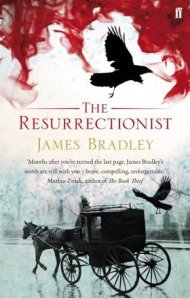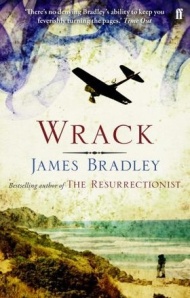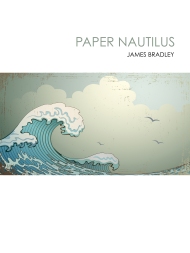Best Books 2016
 It’s that time of year, so because what the world needs is yet another best of the year list (surely it’s time we all went meta and started producing lists of the best best of lists?) I thought I’d pull together a quick roundup of some of the books I loved this year (if I get the time I’ll also put together a few music picks).
It’s that time of year, so because what the world needs is yet another best of the year list (surely it’s time we all went meta and started producing lists of the best best of lists?) I thought I’d pull together a quick roundup of some of the books I loved this year (if I get the time I’ll also put together a few music picks).
If you’d like to get a head start you can check out the Best Books features in The Weekend Australian (Part One and Part Two) and Australian Book Review, both of which include some of my selections as well as those of many other smart, interesting people, or indeed the features in The Sydney Morning Herald and The Age, which I’m not part of but are terrific. And you can also hear me in conversation with Jonathan Strahan, Gary Wolfe and Ian Mond about our favourite science fiction and fantasy books of the year on The Coode Street Podcast’s Year in Review episode.
As I say in The Weekend Australian, my favourite book of the year was Dana Spiotta’s Innocents and Others, the follow-up to her fabulous Stone Arabia. I’m a huge fan of Spiotta, and like all her books Innocents and Others is just thrilling as a piece of literary art: beautifully written, strikingly intelligent about the questions of friendship and art at its core, wonderfully oblique in its approach to narrative. If you haven’t read it I recommend it very much (in fact I recommend all her books).
 I also hugely admired Annie Proulx’s monumental Barkskins, a book that forces the reader to confront the scale of the destruction humans are visiting on the world around us, and which, in its final, wrenching sections, embodies more than a little of the incoherent grief so many of us feel. It’s also a book that makes a useful companion piece to three of the best non-fiction books I read this year, Roy Scranton’s Learning to Die in the Anthropocene, Amitav Ghosh’s The Great Derangement: Climate Change and the Unthinkable and Horatio Clare’s slim but often profound search for a vanished bird, Orison for a Curlew.
I also hugely admired Annie Proulx’s monumental Barkskins, a book that forces the reader to confront the scale of the destruction humans are visiting on the world around us, and which, in its final, wrenching sections, embodies more than a little of the incoherent grief so many of us feel. It’s also a book that makes a useful companion piece to three of the best non-fiction books I read this year, Roy Scranton’s Learning to Die in the Anthropocene, Amitav Ghosh’s The Great Derangement: Climate Change and the Unthinkable and Horatio Clare’s slim but often profound search for a vanished bird, Orison for a Curlew.
I was also deeply impressed by Colson Whitehead’s speculative reworking of the history of slavery, The Underground Railroad, Frances Spufford’s gloriously poised and entirely delightful riff on the eighteenth century novel, Golden Hill (a book that deserved much more attention than it received), Ann Patchett’s characteristically smart and expansive Commonwealth, Paul Beatty’s Man Booker-winning The Sellout, and the fifth volume in Karl Ove Knausgaard’s My Struggle, Some Rain Must Fall (like many people I’m torn between being unable to wait for the sixth and regret that it will be the final volume).
 I’m not sure it would be correct to say I loved Adam Haslett’s Imagine Me Gone, but other than the Proulx I’m not sure any book affected me more this year: I found its portrait of grief and mental illness and their generational legacy deeply distressing and extremely powerful. Something similar is true of Han Kang’s intense and deeply disquieting The Vegetarian, while Elizabeth Strout’s hugely impressive My Name is Lucy Barton is distinguished by the pain that lurks in its silences. And although Steven Amsterdam’s The Easy Way Out approaches its subject with a real lightness of touch, its exploration of the ways in which assisted suicide affects those who must facilitate it is hugely intelligent and very moving.
I’m not sure it would be correct to say I loved Adam Haslett’s Imagine Me Gone, but other than the Proulx I’m not sure any book affected me more this year: I found its portrait of grief and mental illness and their generational legacy deeply distressing and extremely powerful. Something similar is true of Han Kang’s intense and deeply disquieting The Vegetarian, while Elizabeth Strout’s hugely impressive My Name is Lucy Barton is distinguished by the pain that lurks in its silences. And although Steven Amsterdam’s The Easy Way Out approaches its subject with a real lightness of touch, its exploration of the ways in which assisted suicide affects those who must facilitate it is hugely intelligent and very moving.
Other novels I enjoyed very much include David Dyer’s wonderful Titanic novel, The Midnight Watch, Sarah Perry’s exuberant The Essex Serpent, Mike McCormack’s novel in a single sentence, Solar Bones, Ali Smith’s Autumn, J.M. Coetzee’s delightfully strange and darkly witty The Schooldays of Jesus and Kirsten Tranter’s beautifully pitched study of grief, Hold. And while I came to them late (and I don’t think the stories are necessarily best served by being presented in collected form) I was hugely impressed by Lucia Berlin’s A Manual for Cleaning Women.
 In terms of non-fiction, my pick of the year is Bruce Pascoe’s brilliant study of pre-contact Aboriginal agriculture and technology, Dark Emu. There aren’t many books I think every Australian should read but Pascoe’s is definitely one of them. I also very much admired Amy Liptrot’s Wainwright Prize winner, The Outrun, Frans de Waal’s Are We Smart Enough To Know How Smart Animals Are?, Jennifer Ackerman’s The Genius of Birds and Kate Summerscale’s brilliant The Wicked Boy: The Mystery of a Victorian Child Murderer. I also hugely enjoyed Bruce Springsteen’s foray into memoir, Born to Run, and although I read it under sad conditions, Simon Critchley’s wonderful Bowie, a book that along with Hugo Wilcken’s study of Low is, for my money, the best of the small library of Bowie books I’ve read in the past couple of years (if you’re interested you can check out my essay about Bowie, ‘Loving the Alien’, which is also in this year’s Best Australian Essays).
In terms of non-fiction, my pick of the year is Bruce Pascoe’s brilliant study of pre-contact Aboriginal agriculture and technology, Dark Emu. There aren’t many books I think every Australian should read but Pascoe’s is definitely one of them. I also very much admired Amy Liptrot’s Wainwright Prize winner, The Outrun, Frans de Waal’s Are We Smart Enough To Know How Smart Animals Are?, Jennifer Ackerman’s The Genius of Birds and Kate Summerscale’s brilliant The Wicked Boy: The Mystery of a Victorian Child Murderer. I also hugely enjoyed Bruce Springsteen’s foray into memoir, Born to Run, and although I read it under sad conditions, Simon Critchley’s wonderful Bowie, a book that along with Hugo Wilcken’s study of Low is, for my money, the best of the small library of Bowie books I’ve read in the past couple of years (if you’re interested you can check out my essay about Bowie, ‘Loving the Alien’, which is also in this year’s Best Australian Essays).
I’m biased, obviously, but of the science fiction and fantasy I read my favourite was the first instalment in my partner Mardi McConnochie’s new series for middle grade readers, Escape to the Moon Islands. Like all her books it’s warm and funny and wonderfully original and I can’t recommend it enough (it also has a talking parrot).
In second place was Garth Nix’s Goldenhand, which saw Nix return to the Old Kingdom with triumphant results, but it was a close-run thing with Guy Gavriel Kay’s wonderfully expansive sort-of sequel to Sailing to Sarantium, Children of Earth and Sky, and I also very much enjoyed the conclusion to Paul McAuley’s Jackaroo duology, Into Everywhere, Lavie Tidhar’s Central Station and Charlie Jane Anders’ exuberant Anthropocene fantasy/sci fi mash-up, All The Birds in the Sky. And while it isn’t strictly speculative, I also hugely admired Nike Sulway’s Dying in the First Person.
There’s not really any competition for comic of the year as far as I’m concerned: that crown goes to Tom King and Gabriel Hernandez Walta’s stunning Vision, but I also loved Adrian Tomine’s short graphic stories, Killing and Dying.
 And finally, although my experience of it was tinged with great sadness, I loved my friend Georgia Blain’s final novel, Between a Wolf and a Dog. Georgia’s death a fortnight ago from brain cancer leaves a huge hole in so many people’s lives, but it has also robbed us of one of the most important voices in contemporary Australian literature: Georgia’s writing, both fictional and non-fictional, was always distinguished by her preparedness to speak plainly and truthfully about her own experience, the lives of women and the demands and contradictions of family and love, and to my mind at least she was one of the bravest writers I have ever known. Worse yet, it came at a time when Georgia’s work seemed to have found a new freedom and expansiveness, qualities that are very much on display in Between a Wolf and a Dog, and which I am certain will be everywhere in the book she completed in her final months, The Museum of Words, which will be published next year. I wrote a short piece about Georgia and her work for the Fairfax press, but there have also been beautiful tributes to her from Charlotte Wood, Sophie Cunningham and Jane Gleeson-White, and a terrific piece about her and her mother, Anne Deveson (who died only three days after Georgia) by Anne Summers. As Sophie says, she was magnificent.
And finally, although my experience of it was tinged with great sadness, I loved my friend Georgia Blain’s final novel, Between a Wolf and a Dog. Georgia’s death a fortnight ago from brain cancer leaves a huge hole in so many people’s lives, but it has also robbed us of one of the most important voices in contemporary Australian literature: Georgia’s writing, both fictional and non-fictional, was always distinguished by her preparedness to speak plainly and truthfully about her own experience, the lives of women and the demands and contradictions of family and love, and to my mind at least she was one of the bravest writers I have ever known. Worse yet, it came at a time when Georgia’s work seemed to have found a new freedom and expansiveness, qualities that are very much on display in Between a Wolf and a Dog, and which I am certain will be everywhere in the book she completed in her final months, The Museum of Words, which will be published next year. I wrote a short piece about Georgia and her work for the Fairfax press, but there have also been beautiful tributes to her from Charlotte Wood, Sophie Cunningham and Jane Gleeson-White, and a terrific piece about her and her mother, Anne Deveson (who died only three days after Georgia) by Anne Summers. As Sophie says, she was magnificent.

 Just a quick post to say how delighted I am to discover
Just a quick post to say how delighted I am to discover 




 As many of you would be aware, on Tuesday Australia’s Productivity Commission recommended lifting the existing restrictions upon the parallel importation of books into Australia. Those interested in reading the full text of the Report can find it on the Commission’s
As many of you would be aware, on Tuesday Australia’s Productivity Commission recommended lifting the existing restrictions upon the parallel importation of books into Australia. Those interested in reading the full text of the Report can find it on the Commission’s  Now I don’t mean to carp, but what is it with 2009 and unreasonably fat books? It’s only May, and I’ve already had to wade my way through the 900-odd pages of 2666, the 1,000 (incredibly dense) pages of The Kindly Ones and the 600 or so of A.S. Byatt’s The Children’s Book. And this morning Hilary Mantel’s 600 page-plus Wolf Hall lands on my doorstep with an audible thud. Don’t these people have better things to do with their time?
Now I don’t mean to carp, but what is it with 2009 and unreasonably fat books? It’s only May, and I’ve already had to wade my way through the 900-odd pages of 2666, the 1,000 (incredibly dense) pages of The Kindly Ones and the 600 or so of A.S. Byatt’s The Children’s Book. And this morning Hilary Mantel’s 600 page-plus Wolf Hall lands on my doorstep with an audible thud. Don’t these people have better things to do with their time?
 I promise I’ll stop after this, but EW has an
I promise I’ll stop after this, but EW has an  I’ve got a piece about depression and creativity in the latest Griffith Review, Essentially Creative. The piece explores the links between mood disorders and creativity, and asks what we’re losing when we define behaviours intimately connected with creativity as disorders. It’s also a very personal piece, and one I found quite confronting to write.
I’ve got a piece about depression and creativity in the latest Griffith Review, Essentially Creative. The piece explores the links between mood disorders and creativity, and asks what we’re losing when we define behaviours intimately connected with creativity as disorders. It’s also a very personal piece, and one I found quite confronting to write. There’s no question that, for good or ill, James Wood has reigned supreme amongst literary critics for more than a decade. At least in part this state of affairs is a reflection of Wood’s missionary fervour, his sense that literature – and the novel in particular – must fill the gap left by the death of religion. But it is also testament to the thrilling force and acuity of his writing. Certainly I remember the excitement of encountering his first book, The Broken Estate, and the chastening realization that the person speaking with such eloquence and ferocity was only a year or so older than myself.
There’s no question that, for good or ill, James Wood has reigned supreme amongst literary critics for more than a decade. At least in part this state of affairs is a reflection of Wood’s missionary fervour, his sense that literature – and the novel in particular – must fill the gap left by the death of religion. But it is also testament to the thrilling force and acuity of his writing. Certainly I remember the excitement of encountering his first book, The Broken Estate, and the chastening realization that the person speaking with such eloquence and ferocity was only a year or so older than myself.

